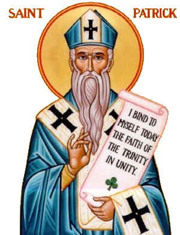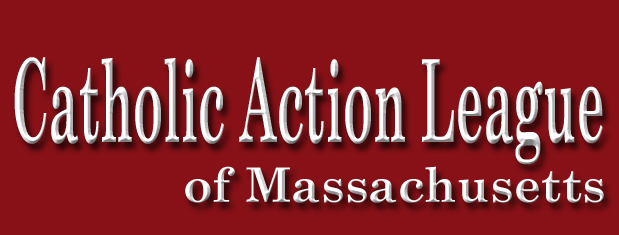Papal Success in England . . .
Provokes Secularist Bigot
in the Washington Post
By PAUL LIKOUDIS & C. JOSEPH DOYLE
Published Autumn, 2010
Susan Jacoby, The Washington Post’s and Newsweek’s resident secularist who
writes as the “Spirited Atheist,” gave vent to her long-simmering anti-Catholicism after
Pope Benedict’s triumphal visit to England (September 16-19, 2010).
Jacoby, who is infamously known for her contention that anti-Catholicism in American society is a “canard” that doesn’t exist, was obviously stung by the warm welcome Benedict received in England and Scotland, and so took it upon herself to debunk Catholic martyrdom in English history, essentially arguing Elizabeth I was correct in her bloody anti-Catholic persecution because Catholics were trying to overthrow her government.
Her September 22 essay, titled, “Martyrdom, Selective Memory, and Pope Benedict in England,” opened with her mockery of the Holy Father for shaking the hand of
a female Anglican priest, and went down in tone and substance from there.
“After all, the poor pontiff had to actually shake hands with a female Anglican
priest — a torment he is not required to undergo every day,” she sneered. “And he
was visiting the country whose leaders had contributed so much (along with Martin
Luther, of course) to Rome’s loss of its status as the sole authority in Christendom.
“True,” she continued, “that was half a millennium ago, but the Vatican has really
never gotten over the loss. . . . But Benedict lost me when, at a prayer vigil in Hyde
Park, he evoked memories of the 16th-century Catholic martyrs who were drawn and
quartered for remaining loyal to the Vatican and added, ‘In our time, the price to be paid
for fidelity to the gospel is no longer being hanged, drawn and quartered, but it often
involves being dismissed out of hand, ridiculed or parodied.’
“That, Your Holiness, is what we secularists call progress.”
Those who consider themselves the “apostles of reason” — Jacoby is the director of the “rationalist” Center for Inquiry in Manhattan — rarely use the tools of
reason in their arguments; logic is foreign to them.
Jacoby’s column was not a treatise, but a polemic filled in sarcasm, insolence, and
abuse, in which she dredged up some of the oldest, stalest, lamest, and longest-discredited calumnies against the Church.
Jacoby, who exalts science over Revelation, displays an astonishing level of intellectual sloppiness and sterility, unable to come up with a single original argument in
her critique of the Catholic Church.
For example, she argues that the Jesuits executed by Elizabeth were justifiably put
to death because they were plotting to assassinate her.
“For the most part, people actually had to do something to be executed for faith-based treason under Elizabeth — say, be a Jesuit priest sent to England to organize a
plot to kill Elizabeth and place her cousin, the faithful Catholic Mary Queen of Scots,
on the throne. The Pope naturally portrayed these Jesuits as martyrs, but it’s
easy to see why Elizabeth would have viewed many of them as what many of
them were — would-be assassins and threats to England,” she wrote.
The historical record, however, is quite clear.
Elizabeth ascended the throne in November of 1558 at the age of 26, pretending
to be a loyal Catholic. She immediately summoned Parliament, which met between
January and May 1559, and which enacted, at Elizabeth’s request and with her approval, a series of laws, most notably the Act of Supremacy and the Act of Uniformity — which resulted in the abolition of the Mass, the arrest and imprisonment of
the entire Catholic hierarchy, the seizure of every parcel of Church property in England, the deprivation of every priest who remained loyal to the Pope, and an oppressive system of fines intended to make destitute anyone who refused to attend Anglican services.
The response of Pope Pius IV to this singular aggression was to send a nuncio offering concessions in an attempt to find a negotiated solution. Elizabeth refused to receive the nuncio and went on to impose these same laws in English-occupied Ireland. She then invaded Scotland and was instrumental in establishing a Calvinist anti-Catholic regime in that country.
When her Catholic cousin, Mary Queen of Scots, fled to England seeking refuge in
1568, she was imprisoned by Elizabeth. A year later, in 1569, Catholics in the north
of England, unable to endure Elizabeth’s oppressive regime any longer, rose in revolt and were slaughtered. It was only after that St. Pius V, in 1570, after 11 years
of anti-Catholic persecution by Elizabeth’s government, issued Regnans in excelsius,
excommunicating Elizabeth and absolving her subjects from their allegiance.
It was Elizabeth who then began the bloody execution of Jesuits and the Douai
seminary priests in England and Ireland. It was only after this long record of cruelty
and oppression that a minority of Catholics began considering the use of physical
force to replace Elizabeth on the throne with the lawful heir, Mary Queen of Scots.
Catholics, in this case, were the victims and not the aggressors.
Jacoby then turns her thoughts to Sir Thomas More, whose martyrdom she derides, asserting More did not die for his faith, but for political reasons.
More, she claims, “was an enemy of all who would make the scriptures accessible
to people in their own language. If you consider that a cause worthy of respect and
honor, then I suppose you can weep tears over More’s martyrdom. In the hagiographical 1966 film about More, A Man for All Seasons, his opposition to an English-language Bible was never mentioned. Personally, I prefer a martyr who died for the
right of people to read what the Bible actually says in a language they can understand. But I can see why Pope Benedict, who has an affinity for those who want to bring back the Mass in Latin (another big 16th-century issue), wouldn’t consider Tyndale his favorite martyr.”
The truth that Jacoby cannot see is that More never lifted a political finger against
Henry. He was martyred because he refused to swear to a lie, that is, that Henry
was the Supreme Head of the Church in England. More died not only for the faith,
but for the truth, and the sake of his own conscience.
In making this argument, Jacoby demonstrates her own extremism. Not even
conventional Protestant and liberal historians try to demonize More. Everyone recognizes that he was entirely innocent and unoffending, which is why some Protestant
historians, like A.G. Dickens, can write a dense history of the English Reformation
without ever mentioning More.
“The whole concept of martyrdom is quite dicey,” Jacoby goes on, “as the dueling martyrologies of the English Reformation indicate. . . . All religions have martyrs,
and that is one reason I object to both religion and martyrology. . . . I do not believe
that upholding the spiritual authority of one man over another (the pope over a king)
is worth dying for. I do not believe it is worth dying to assert that Jesus was or was
not the Messiah. I do not believe it is worth dying for the right to mumble the Mass in
a language that most of the faithful don’t understand.
“Benedict’s basic message throughout his visit to the United Kingdom was that
England has become a largely secular society and that the mission of his Church is
to challenge ‘aggressive forms of secularism.’ It was in this context that he cited the
names of Catholic martyrs. He might reflect that since secularists have been more
or less in charge, no one has been drawn and quartered for professing a particular
religious belief.
“But oh, how painful it is to be mocked!” she ended.
In Jacoby’s reading of history, both Mary and Elizabeth have an equal number of martyrs on their hands. This is patently false. While the Catholic Queen Mary Tudor did
execute some Protestants for heresy, almost all of the leading Protestant
heresiarchs, such as the Archbishop of Canterbury, Thomas Cranmer, were also
guilty of treason. When Mary’s Protestant half-brother Edward VI died in April 1553,
the leaders of England’s Protestant government ignored the law and proclaimed Lady
Jane Grey as queen. They then issued a warrant for the arrest of Mary, which almost certainly would have resulted in her assassination.
It was Mary’s piety which saw heresy as an offense against God, and therefore a
greater crime than treason, that caused her to prosecute Cranmer, Ridley, and Latimer
as heretics rather than as traitors. Elizabeth, on the other hand, executed a vast number of Catholics, the overwhelming majority of whom were guilty of nothing more
than practicing their faith in very difficult and dangerous times.
Jacoby also continues in her comparison of the Catholic Mary to the Protestant
Elizabeth, of never mentioning the “I-word” — Ireland. Elizabeth was responsible for the
deaths of hundreds of thousands of the Irish through government-enforced famine, malnutrition, exposure, disease, war, imprisonment, execution, and exile.
Elizabeth initiated the brutal policy of conquest in Ireland which set the stage for the
Irish genocide carried out by Oliver Cromwell less than a half-century after her
death.
Cromwell, a beneficiary of Elizabeth’s “enlightened secularism,” as Jacoby might
call it, went on to butcher a half-million Irish, and banish another 300,000, sold as
slaves or indentured servants in the New World.
In England, during Pope Benedict’s recent visit, commentators in various media drew attention to the contrast between Benedict’s gracious manner and the adoring crowds who followed him, and the nasty, mean-spirited, and vitriolic character of his atheist and secularist critics.
It appears that these atheists not only reject the gift of faith, but even more tellingly
so, the theological virtue of charity. Susan Jacoby is a perfect example of the type of
shallow intellects and arrogant, smug, and condescending personalities sought out by the
major media to ridicule the Catholic Church at a moment of great historical significance.
She is watching the Church revive in England, and she is furious. If she is angry, that means
she is losing.
+++++++++++++++++
(C. Joseph Doyle is executive director of the Catholic Action League of Massachusetts
and Paul Likoudis was news editor for The Wanderer.)
Reprinted with permission from The Wanderer.



